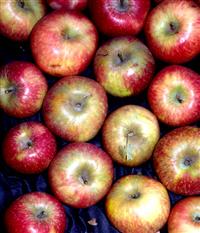
Stress and Lifestyle
For many of us the hours we work, how we perform tasks, how we organise our day, and even how we dress is controlled by an employer. The tasks we must perform at work, interacting with new technologies, accommodating different world regions, dealing with increasingly diverse job requirements, along with balancing of work and family life - are all issues of great complexity that cause some degree of stress. There are many other causes too such as - competition for a job, promotion, partner, or a car parking space, purchasing a home, and relationship difficulties.
Stress is common, and a serious issue in many parts of the world. It is often unavoidable but it can be managed and its impact greatly minimised in many different ways.
Learn to manage and overcome stress
Study this course to find out best practices for reducing harmful levels of stress. Some people will study this course for self-help reasons and others with a view to helping others. Perhaps you already work in a role where helping people to manage stress is part of your role. Whatever your purpose in studying stress management there are benefits to be had for both yourself and others. Reducing stress will undoubtedly improve your overall wellbeing, reduce your risk of ill-health and improve your ability to deal with everyday situatons.
- Learn to manage stress
- Learn relaxation techniques
- Lead a healthier life
- Help others as a counsellor, therapist, teacher
COURSE STRUCTURE
The course is divided into 8 lessons as follows (students complete one assignment per lesson):
1. Body Changes
- Modern Day Stressors: Controls, Complexity, Competition, Computers, etc
- Symptoms and Affects of Stress
- The Muscle Response
- Gastrointestinal Responses
- Cardiovascular Responses
- Skin Responses
- The fight or flight response
- Stress Effect on Wellbeing
- Stress and the immune system
- Stress Management Response Program
2. Easy Living
- Work Addiction
- Understanding Stress Symptoms (Confusion, Depression, Changes in sleeping, eating or sexual habits, Mood changes, drugs)
- Determining Cause of Stress
- Deciding How to Deal with Stress
- Terminology
- Self Image
- Tips for Relaxation (Massage, Aromatherapy, Relaxation, Hobbies, etc)
- Controlling Stress
- Too Little Stress
3. Pills and Alcohol
- Understanding Alcohol
- What is Too Much Alcohol
- Over the Counter or Non Prescription Drugs
- Drugs Prescribed by a Doctor
- Illegal Drugs
- Seeking help
 4. Self Esteem
4. Self Esteem
- What is Self esteem
- Realistic Expectations
- Altering Your Perception
- Social Support
- Building Self Esteem in Others
5. Managing Your Own Career
- Work Satisfaction
- Managing a Career
- Reviewing Your Career
- Standing Out and Progressing
6. Security and Decision Making
- Self assurance
- Developing Security and Self Assurance
- Analyzing Ourselves
- Decision making
- Strategy
- Problem solving
 7. Relaxation and Nutrition
7. Relaxation and Nutrition
- Relaxation
- Nutrition; we are what we eat
- Dietary Fibre, Vitamins and Minerals, and a Balanced Diet
- Problems of Nutrition and Diet
- Weight loss
- Tips for Healthy Eating
8. Personality and Stress
- Relationship between Personality and Stress
- Personality Types -Type A and Type B personalities
- Introvert
- Extrovert
- Personal style inventory -How to Determine Personality Type
Duration: 100 hours
AIMS
- Identify changes that occur to the body as stress develops.
- Identify the relationship between lifestyle and stress.
- Discuss the impact of legal drugs on the psychology of a person.
- Discuss the importance of self esteem in minimizing stress.
- Determine options for career management that will minimize potential for stress.
- Identify and address security issues that impact on stress levels.
- Identify aspects of relaxation and nutrition in a person’s life that may impact upon stress levels.
- Identify the relationship between stress and personality type.
 Why is Stress Bad
Why is Stress Bad
Stress is modern man's constant enemy. As life becomes more an more hectic, people work longer hours under greater time constraints, over global time zones with less recreation time more and more people struggle to cope with their stress levels. However, with proper self awareness and management techniques stress levels can be lowered, perceptions altered and responses improved. In this course we deal with physical problems related to stress, how to achieve easy living, dealing with drugs, developing self esteem, relaxation, diet and much more.
Learn to Relax
Relaxation is an important part of maintaining health and well being, and being able to calmly deal with life’s stresses. It improves your mental health and gives the body a chance to take a break, releasing muscle tension (that you may not even be aware of), lower blood pressure, improve digestion (the body diverts its focus back to digestion and other maintenance and repair processes instead of being in an alert/alarm phase. Massage, exercise, meditation, Tai Chi, reading books, craft work, guided imagery and yoga are all methods of achieving relaxation. Choose something that you enjoy, that gives you a sense of satisfaction and that you feel best relaxes both your body and mind.
During relaxation exercises the nervous system is also given the opportunity to relax. A simple technique is as follows. Sit in a comfortable chair or in a comfortable position on the floor. Next, say to yourself that you are going to relax completely. Begin with your scalp and work, bit by bit, down to your toes. As you imagine each part of your body imagine it relaxing completely. Remain in the relaxed state for several minutes. You will be amazed at how relaxed you can make yourself feel. Having done this several times you will be able to distinguish between relaxed and tense states. Try incorporating it as part of a daily routine. Being able to sense when you are becoming tense is a very useful skill, giving you the opportunity to stop unproductive stressed reactions earlier, avoiding headaches, muscle aches and the other side-effects of high stress. If you find it difficult to take your mind off stresses and tensions, try saying the words ‘relax’ or ‘sleep’, or even ‘relax and sleep’ over and over to prevent other thoughts from entering your mind.
Another method is to concentrate on the feelings and sensations that you have. Other methods might focus your attention on a particular body part such as the navel, or focusing on a significant object or person. Other relaxation techniques involve practicing slow, deep breathing. You can try chanting a mantra at the same time. In India the most popular of these is om, which refers to God. The idea is to take a deep breath and then exhale and utter om at the same time. This is repeated for several minutes and is likened to an internal massage.
How This Course Could Help You
This course covers physiological, emotional and psychological elements of stress and how they affect us. It reviews poor coping mechanisms and provides insights into adaptive strategies for combating stress.
This course is designed to be of value to people working in, or hoping to work in:
Counselling
Psychotherapy
Psychology
Social work
Nursing
Caring roles
Health professions
Alternative therapies